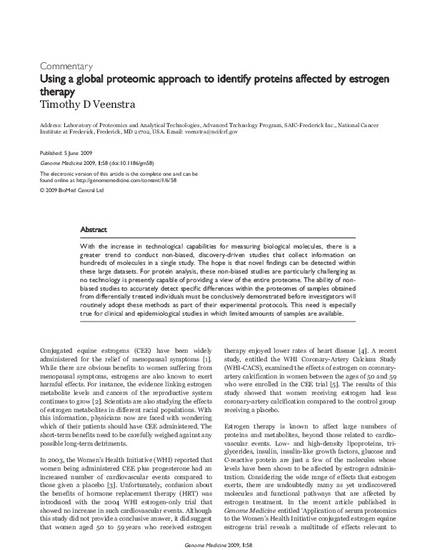
With the increase in technological capabilities for measuring biological molecules, there is a greater trend to conduct non-biased, discovery-driven studies that collect information on hundreds of molecules in a single study. The hope is that novel findings can be detected within these large datasets. For protein analysis, these non-biased studies are particularly challenging as no technology is presently capable of providing a view of the entire proteome. The ability of non-biased studies to accurately detect specific differences within the proteomes of samples obtained from differentially treated individuals must be conclusively demonstrated before investigators will routinely adopt these methods as part of their experimental protocols. This need is especially true for clinical and epidemiological studies in which limited amounts of samples are available.
- Global,
- proteomic,
- estrogen,
- therapy,
- proteins
Available at: http://works.bepress.com/timothy-veenstra/123/
